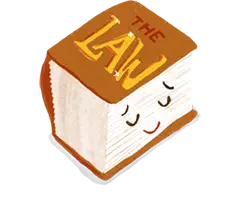Topic
Border control
This page contains different parts of laws about Border control, within the topic of Immigration and citizenship.

Important laws about Border control
Limited Partnerships Act 2008
What it means for an overseas business to be 'carrying on business' in New Zealand
105: Meaning of carrying on business
Parole Act 2002
People in prison might be let out early if they're going to be deported from New Zealand.
55: Offenders may be released early for deportation
Parole Act 2002
Releasing prisoners for deportation: when you can be let out of prison to be sent back to your home country
55A: Implementation of early release for deportation
Immigration Act 2009
When different parts of the Immigration Act 2009 take effect
2: Commencement
Immigration Act 2009
Explains how New Zealand manages immigration and balances national interests with individual rights
3: Purpose
Immigration Act 2009
How to count days for immigration applications and appeals
6: How periods of time to be calculated
Immigration Act 2009
Explanation of secret information and its use in immigration cases
7: Meaning of classified information and proceedings involving classified information
Immigration Act 2009
Explaining when visas or entry permissions are mistakenly granted
8: Meaning of granting visa or entry permission as result of administrative error
Immigration Act 2009
When non-citizens are considered to be in New Zealand illegally
9: Meaning of unlawfully in New Zealand (in relation to person who is not New Zealand citizen)
More laws about Border control
About this project
What is this project?
This project is an experiment to take difficult language, and make it easier to read and understand for everyone.
How do we do this?
What's our process for taking the law and turning it into plain language?
Why is the law written like it is?
Laws are often hard to read. They use a lot of words and language we don't usually use when we talk.
Should we use AI for this?
What are the good and bad sides of using AI?
Is this information the actual law?
We hope that this information will help people understand New Zealand laws. But we think that it's important you talk to someone who understands the law well if you have questions or are worried about something.
You can talk to Community Law or Citizen's Advice Bureau about your rights.
Remember that AI can make mistakes, and just reading the law isn't enough to understand how it could be used in court.
You can talk to Community Law or Citizen's Advice Bureau about your rights.
Remember that AI can make mistakes, and just reading the law isn't enough to understand how it could be used in court.




